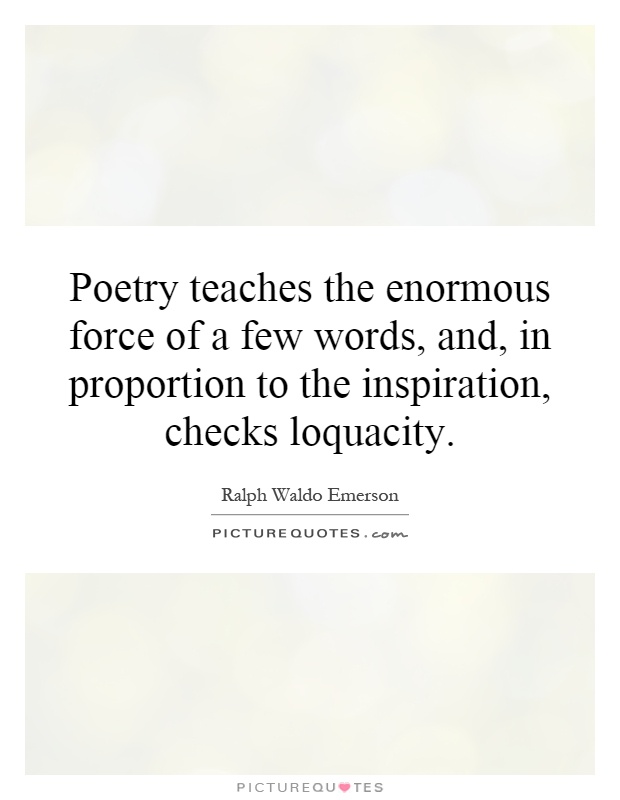Poetry teaches the enormous force of a few words, and, in proportion to the inspiration, checks loquacity

Poetry teaches the enormous force of a few words, and, in proportion to the inspiration, checks loquacity
Ralph Waldo Emerson, a renowned American poet and essayist, understood the power of poetry to convey profound truths in just a few words. In his essay "The Poet," Emerson explores the idea that poetry has the ability to capture the essence of human experience and emotion in a way that is both concise and impactful. He believed that poetry could distill complex ideas into simple, yet profound, language, allowing readers to connect with the deeper truths of existence.Emerson recognized that the brevity of poetry was one of its greatest strengths. By using a few carefully chosen words, a poet could evoke powerful emotions and insights that might be lost in a sea of verbosity. In this sense, poetry serves as a kind of antidote to the excesses of language, reminding us of the importance of economy and precision in our communication.
Emerson also understood that poetry has the ability to inspire and elevate the human spirit. By tapping into the universal themes of love, loss, beauty, and truth, poets can create works that resonate with readers on a deep and profound level. In this way, poetry has the power to transcend the limitations of language and touch the very core of our being.
At the same time, Emerson recognized that the true power of poetry lies in its ability to check loquacity, or excessive talkativeness. In a world filled with noise and distraction, poetry offers a moment of stillness and reflection, allowing us to pause and contemplate the deeper meanings of life. By focusing on the essential truths of existence, poetry can help us cut through the clutter of everyday life and connect with what is truly important.












 Friendship Quotes
Friendship Quotes Love Quotes
Love Quotes Life Quotes
Life Quotes Funny Quotes
Funny Quotes Motivational Quotes
Motivational Quotes Inspirational Quotes
Inspirational Quotes